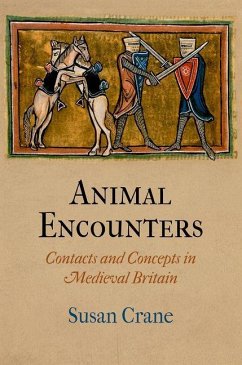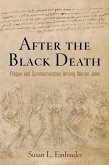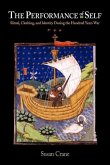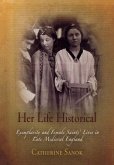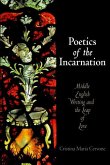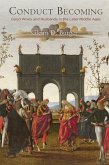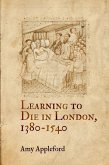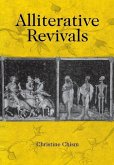Traces of the living animal run across the entire corpus of medieval writing and reveal how pervasively animals mattered in medieval thought and practice. In fascinating scenes of cross-species encounters, a raven offers St. Cuthbert a lump of lard that waterproofs his visitors' boots for a whole year, a scholar finds inspiration for his studies in his cat's perfect focus on killing mice, and a dispossessed knight wins back his heritage only to give it up again in order to save the life of his warhorse. Readers have often taken such encounters to be merely figurative or fanciful, but Susan Crane discovers that these scenes of interaction are firmly grounded in the intimate cohabitation with animals that characterized every medieval milieu from palace to village. The animal encounters of medieval literature reveal their full meaning only when we recover the living animal's place within the written animal.
The grip of a certain humanism was strong in medieval Britain, as it is today: the humanism that conceives animals in diametrical opposition to humankind. Yet medieval writing was far from univocal in this regard. Latin and vernacular works abound in other ways of thinking about animals that invite the saint, the scholar, and the knight to explore how bodies and minds interpenetrate across species lines. Crane brings these other ways of thinking to light in her readings of the beast fable, the hunting treatise, the saint's life, the bestiary, and other genres. Her substantial contribution to the field of animal studies investigates how animals and people interact in culture making, how conceiving the animal is integral to conceiving the human, and how cross-species encounters transform both their animal and their human participants.
Hinweis: Dieser Artikel kann nur an eine deutsche Lieferadresse ausgeliefert werden.
The grip of a certain humanism was strong in medieval Britain, as it is today: the humanism that conceives animals in diametrical opposition to humankind. Yet medieval writing was far from univocal in this regard. Latin and vernacular works abound in other ways of thinking about animals that invite the saint, the scholar, and the knight to explore how bodies and minds interpenetrate across species lines. Crane brings these other ways of thinking to light in her readings of the beast fable, the hunting treatise, the saint's life, the bestiary, and other genres. Her substantial contribution to the field of animal studies investigates how animals and people interact in culture making, how conceiving the animal is integral to conceiving the human, and how cross-species encounters transform both their animal and their human participants.
Dieser Download kann aus rechtlichen Gründen nur mit Rechnungsadresse in A, D ausgeliefert werden.
Hinweis: Dieser Artikel kann nur an eine deutsche Lieferadresse ausgeliefert werden.

